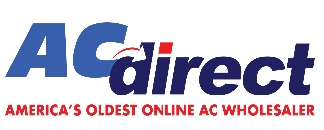Top 10 Air Conditioning Issues You Should Know About
-
 By
Michael Haines
By
Michael Haines
- Apr 10, 2024

Top 10 Air Conditioning Issues You Should Know About
As a homeowner or someone managing a commercial office, you know just how crucial a well-functioning air conditioning system can be. Whether it’s those sweltering summer months or surprisingly warm days in the off-season, the comfort of your indoor environment hinges mainly on your AC.
This isn't just about comfort, either—efficient air conditioning systems are integral to maintaining indoor air quality and preserving the tranquility of your living or workspace.
Recognizing the early signs of air conditioning problems can save you from a sweltering afternoon and prevent the hefty expenses and hassles that come with emergency repairs. Issues caught in their infancy are typically more straightforward and cheaper to fix, helping you extend the lifespan of your system while maintaining its efficiency.
In this blog, I’ll walk you through the 10 most common air conditioning problems that could be plaguing your system. From strange noises and unexpectedly high bills to the dreaded system breakdowns on the hottest day of the year, understanding these issues can help you better manage your HVAC's health and ensure a cooler, more comfortable environment.
Common Problems with Air Conditioning Systems
Insufficient Cooling
Sometimes, your air conditioner might need to better cool your house or office. This can be annoying, especially on hot days. There are a few reasons why this could happen. One common cause is having too little refrigerant, the fluid that helps cool the air.
Another reason might be that the vents, which let air in and out, are blocked by dust or other things. When the air can't flow freely, it is hard for your place to cool down properly.
High Energy Bills
If your air conditioner is not working right, it might use more power. This means your energy bills can get high. You can check a few things to find out why it's using so much power. First, see if the insulation in your home is good. Inadequate insulation makes it hard to keep the cool air inside. Also, look at your thermostat settings. Sometimes, setting your thermostat correctly can help save energy and reduce your bills.

Strange Noises
Air conditioners usually make a low, steady sound. Something might be wrong if you hear noises like banging, hissing, or whistling. These sounds can tell you what the problem might be.
For example, a hissing noise could mean a leak somewhere in the system. Calling a professional to check it out is a good idea if you hear strange noises. They can find and fix the problem so your air conditioner runs quietly again.
Unpleasant Odors
Sometimes, you notice foul smells coming from your air conditioner. This could be caused by mold growing or parts inside getting too hot and burning. If it smells musty, it's probably mold, which happens when there's too much moisture. To eliminate bad smells, you can clean parts of the air conditioner, like the filters, or have someone check it for problems.
Frequent Cycling
Frequent cycling means your air conditioner turns on and off more often than it should. This isn't good because it can wear out the system and cause other problems. It might happen if your air conditioner is too big for your space or needs to be fixed. To help stop this, do regular maintenance, like cleaning and checking for any parts that need to be fixed or replaced.
Water Leaks
This is not a good sign if you see water leaking from your air conditioner. It could mean something is blocked or parts are not working right. Water leaks can damage your home or office if they're fixed slowly. To prevent leaks, check the drain lines regularly and make sure they're not blocked. If you see a leak, it's best to call for help to fix it fast.
Thermostat Problems
The thermostat controls your air conditioner by telling it when to turn on and off, based on the temperature you set. If your thermostat isn't working right, your air conditioner might not cool properly.
This can make your space too hot or too cold. If you think your thermostat is broken, you can try some simple steps to fix it, like making sure it's on the right setting or replacing the batteries. If that doesn't work, you might need a new thermostat.
Frozen Evaporator Coils
The evaporator coils in your air conditioner can freeze, stopping your system from cooling the air properly. This can happen for a few reasons, like not enough air going through the coils or problems with the refrigerant.
If the coils are frozen, your air conditioner must be turned off to thaw. You can prevent this by checking the air filter and replacing it if it's dirty, which helps keep the air moving freely.
Dirty Condenser Coils
The condenser coils are part of your air conditioner that help eliminate heat. If they are dirty, your air conditioner has to work harder, which can lead to problems like overheating or even breakdowns. To keep your air conditioner running well, clean these coils occasionally. You can do this by removing any dirt or leaves blocking them.
Ductwork Issues
The ductwork in your home or office carries the cool air from your air conditioner throughout the building. If there are holes or leaks in the ductwork, it can let cool air escape, which makes your system less efficient. This can make some rooms feel warmer than others.
To fix ductwork problems, you can have someone check the ducts for leaks and seal any holes. This helps ensure that all the cool air stays inside and goes where it should.

Preventative Maintenance Tips for Air Conditioning Systems
Keeping your air conditioning system in good shape is very important. Just like you have a check-up at the doctor to keep you healthy, your AC needs regular check-ups, too! Here’s why it’s good to keep up with maintenance and some easy steps you can follow every year:
Why Regular Maintenance is Important:
- It helps your AC last longer. This means you won’t have to buy a new one as soon as you might have without care.
- It stops big problems before they start. This means fewer surprise repairs that can cost a lot of money.
Simple Yearly Maintenance Checklist:
- Clean or Replace Filters: Dirty filters make your AC work too hard. This can use more energy and make your bills go up.
- Check the Thermostat: Make sure your thermostat is working right. If it’s not, it might not keep your house as cool as you want.
- Inspect Wiring and Components: Have an adult check the electrical parts to make sure everything is safe and nothing is worn out.
- Clean Outside Unit: Keep leaves, dirt, and other stuff away from your outside AC unit.
Benefits of Keeping Your AC Well-Maintained:
- Your AC will do a better job of keeping your house cool and comfy.
- It won’t use as much electricity, which is good for the Earth and your wallet.
- You’ll have fewer big problems, and your AC will work well for many years.
When to Consider HVAC Installation or Upgrade
Sometimes, no matter how well you take care of your AC, it must be replaced. Here are some signs that it’s time to get a new one:
Signs You Might Need a New AC:
- It’s more than 10 years old.
- It breaks down a lot and needs many repairs.
- It doesn’t cool your house evenly or well enough anymore.
Benefits of a New AC:
- New ACs are better at saving energy, which means they can lower your bills.
- They work better and can keep your house cooler without as much noise.
- They are better for the planet because they use energy more efficiently.
If you think it’s time for an upgrade, check out acdirect.com. We have many options to save you money and keep you cool.
Is your air conditioner old or not working as well as it used to? It might be time to think about getting a new one. A new AC can make your home or office much more comfortable and save money on energy bills, too.
Why not take a look at what’s available? You can find a tremendous new AC unit at AC Direct. We make it easy to pick the right one for you, and you’ll be amazed at how much better the new models are. So, why wait? Upgrade your AC today and enjoy a cooler, more comfortable space!
Maintaining your current system and knowing when it's time for an upgrade ensures your air conditioning serves you well throughout your life. If you're ready for the next step, head to AC Direct for incredible options and easy shopping.
Frequently Asked Questions About Air Conditioning
What are the common problems of AC?
Common problems with air conditioning (AC) units include:
- Insufficient cooling: The AC does not cool the space adequately.
- Strange noises: Knocking, hissing, or whistling sounds from the AC unit.
- High energy bills: Your electricity costs may spike if the AC is not running efficiently.
- Water leaks: Water dripping from the AC unit.
- Frozen evaporator coils: Ice forming on the AC coils, leading to poor cooling.
- Dirty filters: Clogged or filthy filters can restrict airflow and reduce efficiency.
- Thermostat issues: The AC does not turn on or off because the thermostat is malfunctioning.
How can I check my AC problem?
To diagnose problems with your AC, follow these steps:
- Check the thermostat: Ensure it is set to cool and the temperature is set lower than the room temperature.
- Inspect air filters: Replace or clean dirty air filters to improve airflow and cooling efficiency.
- Listen for unusual noises: Noises can indicate mechanical problems or debris inside the unit.
- Look for leaks: Water or refrigerant leaks can cause significant issues, including low cooling capacity.
- Examine the airflow: The blower fan might be the issue.
- Check outside unit: Ensure the outdoor unit is not covered or blocked by debris like leaves or dirt.
What is the common problem in split AC?
Common problem in split AC systems is clogged filters, which can reduce airflow and cooling efficiency. Other frequent issues include:
- Refrigerant leaks: This leads to inadequate cooling and potential damage to the compressor.
- Drainage problems: Improperly installed or blocked drainage can prevent water from backing up and leaking.
- Faulty fans: Issues with the fan motors in the indoor or outdoor units can cause poor cooling and airflow.
Why your AC is not cooling on hot days?
If an AC is not cooling effectively in high temperatures, possible reasons include:
- Overheating outdoor unit: If the outdoor unit is in direct sunlight or poorly ventilated, it may overheat.
- Low refrigerant levels: Refrigerant necessary for cooling, might be low due to leaks.
- Inadequate size: The AC unit might need to be bigger for the area it's supposed to cool.
- High indoor heat load: Appliances and electronics inside the space can generate heat, overwhelming the AC.
Why is AC blowing but not cold?
If the AC is blowing air but it's not cold, common causes are:
- Low or leaking refrigerant: The chemical that cools the air may be insufficient due to leaks.
- Dirty evaporator coils: Dirt and debris on the coils can prevent them from absorbing heat effectively.
- Faulty compressor: The compressor is the heart of your AC's cooling process; if it fails, the AC won’t cool even though it's blowing air.
- Thermostat settings: Ensure the thermostat is set to cooling mode and working correctly.

 and now, NASCAR Racing Sponsor
and now, NASCAR Racing Sponsor










